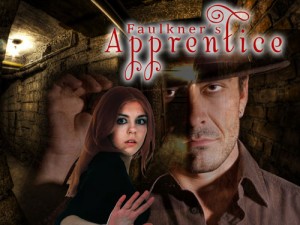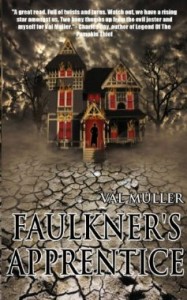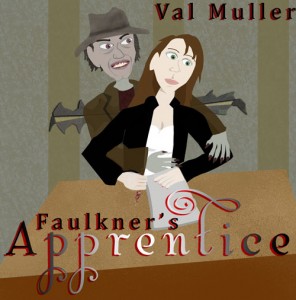 Today’s post is part of a series in which I highlight a character or theme from one of my works, especially as it relates to something in the news. Today’s post is a reaction to a news story I read about in July, and although I wrote this over the summer, I thought I’d save the post for the fall—since the creepy theme is fitting for Halloween.
Today’s post is part of a series in which I highlight a character or theme from one of my works, especially as it relates to something in the news. Today’s post is a reaction to a news story I read about in July, and although I wrote this over the summer, I thought I’d save the post for the fall—since the creepy theme is fitting for Halloween.
I’ll be honest: I don’t usually read The Washington Post or The Washington Post Magazine; it comes to my house on the weekend as part of the Wall Street Journal subscription. But I was driving somewhere over the summer, and the “teaser” on the radio announced a sinister story being featured in the week’s magazine: something to the effect of a pair of hikers went rock climbing one day…and only one returned!
It was intriguing enough to convince me to pick up the July 10 edition of the magazine. The creepiness of the story—someone turning against a good friend—reminded me immediately of my novel Faulkner’s Apprentice. (The news story is available here if you are interested.)
 I’ll admit it’s macabre, but I am fascinated by learning about motives behind crimes. Even with dictators and politicians who I can’t stand, there’s still something intriguing in looking at what makes them tick and what drives them to act the way they do. Often it’s a piece of their past: an experience, the way a parent treated them, a chip on their shoulder…
I’ll admit it’s macabre, but I am fascinated by learning about motives behind crimes. Even with dictators and politicians who I can’t stand, there’s still something intriguing in looking at what makes them tick and what drives them to act the way they do. Often it’s a piece of their past: an experience, the way a parent treated them, a chip on their shoulder…
In the article, we learn that the killing at Carderock was a mentor-mentee situation. The mentor helped the mentee in his rock-climbing endeavors. The mentor had a somewhat idiosyncratic personality, and it rubbed people the wrong way even as he helped them. Several factors combined with this abrasive personality to trigger the mentee, and during an unplanned confrontation, the mentee snapped, attacked, and became a murderer.
It wasn’t the sensationalized story the radio advertisement made it out to be; rather, it was somewhat sad for all involved. At the time of the article, the mentee-turned-murderer was awaiting his sentence (though he had already pleaded guilty). What’s even sadder is that the murder wasn’t planned. It was a situation that escalated out of everyone’s control. And for a writer, it doesn’t take much to imagine how any ordinary person might snap. It reminds me in some ways of The Stranger, in which our protagonist is unduly influenced by the blinding sun and heat, along with other aggressions, to commit murder.
The article quotes a neuroscientist named Doug Fields about rage and he reasons we snap (he wrote a book called Why We Snap), and it seems less uncommon than we’d like to admit—a frightening thing to consider given our divisive political climate and clickbait media.
In Faulkner’s Apprentice, I examine a regular girl-next-door character who, like the mentee in the article, turns into a murderer. I look at her as sort of a modern day Oedipus Rex. The deck seems  stacked against her from the start. Like Oedipus, she means well; but like Oedipus, she makes snap decisions that lead her to some less-than-desirable results (what Doug Fields would call “tragic”).
stacked against her from the start. Like Oedipus, she means well; but like Oedipus, she makes snap decisions that lead her to some less-than-desirable results (what Doug Fields would call “tragic”).
It fascinates me that so many tales attribute such behavior to the devil. In the ancient days of Oedipus Rex, such behavior was often attributed to a malevolent (or temporarily annoyed) god. It’s scary to think of an outside force pressuring us to contradict the values we’ve been taught and the values we know to be true.
But what is perhaps even more frightening is what modern psychologists are trying to discover: that such behavior is caused not by outside malevolence, but by something that already exists within us, something we cannot help. Perhaps with that in mind, stories about the devil are even a little bit comforting because at least in those tales, the evil within us is not inherent.
 Haven’t read Faulkner’s Apprentice? You can read the supernatural chiller on Kindle for just $2.99. About the novel:
Haven’t read Faulkner’s Apprentice? You can read the supernatural chiller on Kindle for just $2.99. About the novel:
Lorelei Cecelia Franklin broke a twenty-year streak of bad luck when she won the L. Cameron Faulkner fiction contest. Apprenticed to the reclusive and famous author, Lorei will spend three weeks with the master of horror himself in the secluded mountains of Virginia. On her way to Faulkner’s mansion, Lorei meets a leathery man who snares souls that desire too much, and everything in the mansion screams warnings against him. But with her lust for Faulkner, her appetite for fame, and her wish to protect her ailing mother, Lorei’s chances for escape are slim.